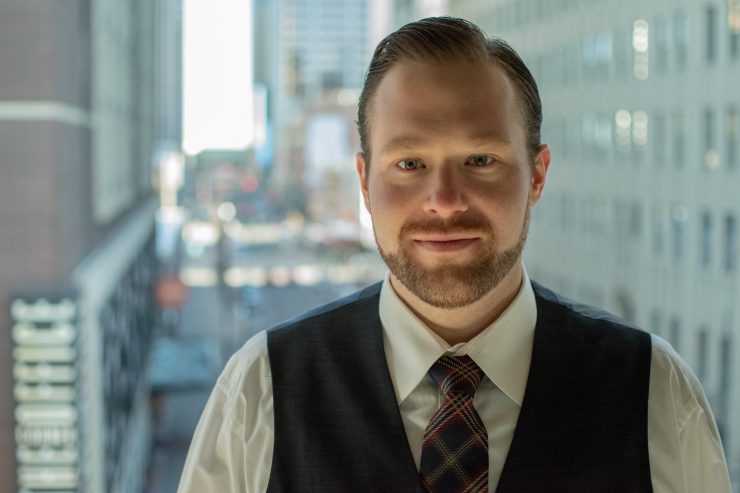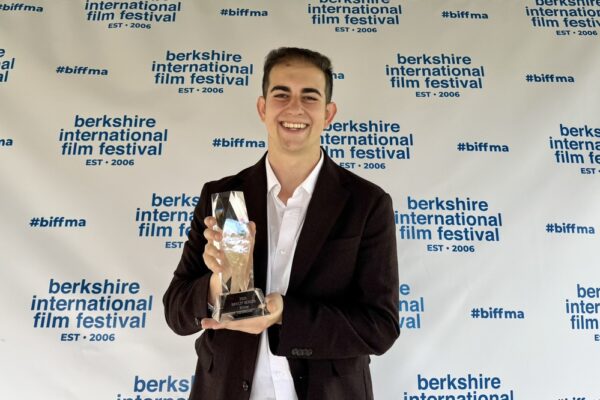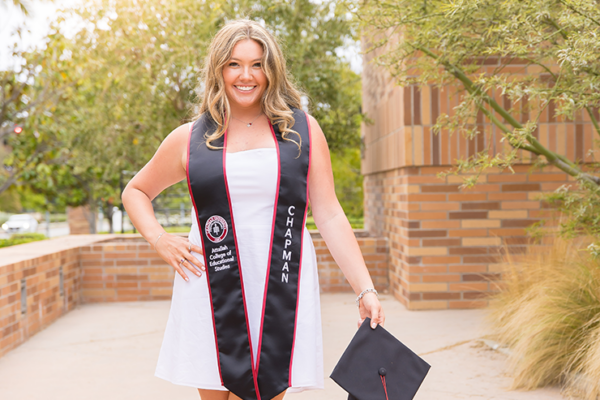Tenor Brett Sprague ’10 took a big leap this year in his opera career, moving across nine time zones to Munich, Germany, and launching a two-season engagement at the Theater Erfurt.
The College of Performing Arts graduate credits his commitment to music performance to William Hall, a professor of music at Chapman University since 1963 and now dean and artistic director of Musco Center for the Arts.
“Dr. Hall’s belief in me and my talent gave me the confidence I needed to chase a very scary dream when I was only 17 years old,” said Sprague. “I do not know where I would be today without Dr. Hall — he’s an incredible mentor and artistic inspiration.”
Sprague says that, contrary to common perception, opera is thriving in today’s culture. We asked him to tell us more about his musical journey.
What experiences at Chapman helped you in your career path?
The campus community experience taught me about respectful interaction, making connections and how to respectfully, and effectively, converse with donors and benefactors. I learned how to work in a team — which is every production — how to adapt to new ideas and styles and how to communicate clearly. In short, I learned how to be an adult, because that was the expectation. I always felt respected, and in turn I always try to show respect — that is not always the case in music training programs.
What’s opera like in 2019, and how is it changing?
We will always have the classics, produced in big glitzy theatres with period sets and costumes, but there is a lot of modern innovation of the art form. There is a new movement in production – one I love – of taking operas of all eras and sizes and producing them in site-specific locations.
What are the biggest misconceptions about what you do?
The most difficult misconception to counter is this idea that opera is a dying art and nobody cares about it. That is so far from the truth. It is not boring, or only for rich or older audiences. We are telling very real, human stories – it can be enjoyed by everyone.
Your move to Munich is a huge step in your career. Was this something you saw yourself doing when you were a student?
Actually, it was my time at Chapman that inspired me to perform in Germany. When I chose to go to Chapman, I didn’t know if I would focus on performing, but my experiences and mentors at Chapman developed my dream of being an opera singer. I studied German throughout my undergraduate work and traveled to Munich for a summer language course. During that summer I decided someday I was going to perform in Germany.
What differences do you notice between European and American theatrical work?
The music is the same, the general idea is the same, but from a business perspective it is much different. German theatres are subsidized by the government, whereas American arts funding relies almost entirely on donors and grants. From a personal perspective, I am able to work as a guest artist in theatres all over while having a fixed position in one theatre, starting next season. This type of fixed position is incredibly rare in the U.S. I can make a regular income without having to constantly freelance, which provides me more security. Also, here I can get high-quality health care and pension plans through my work, unlike back home.





